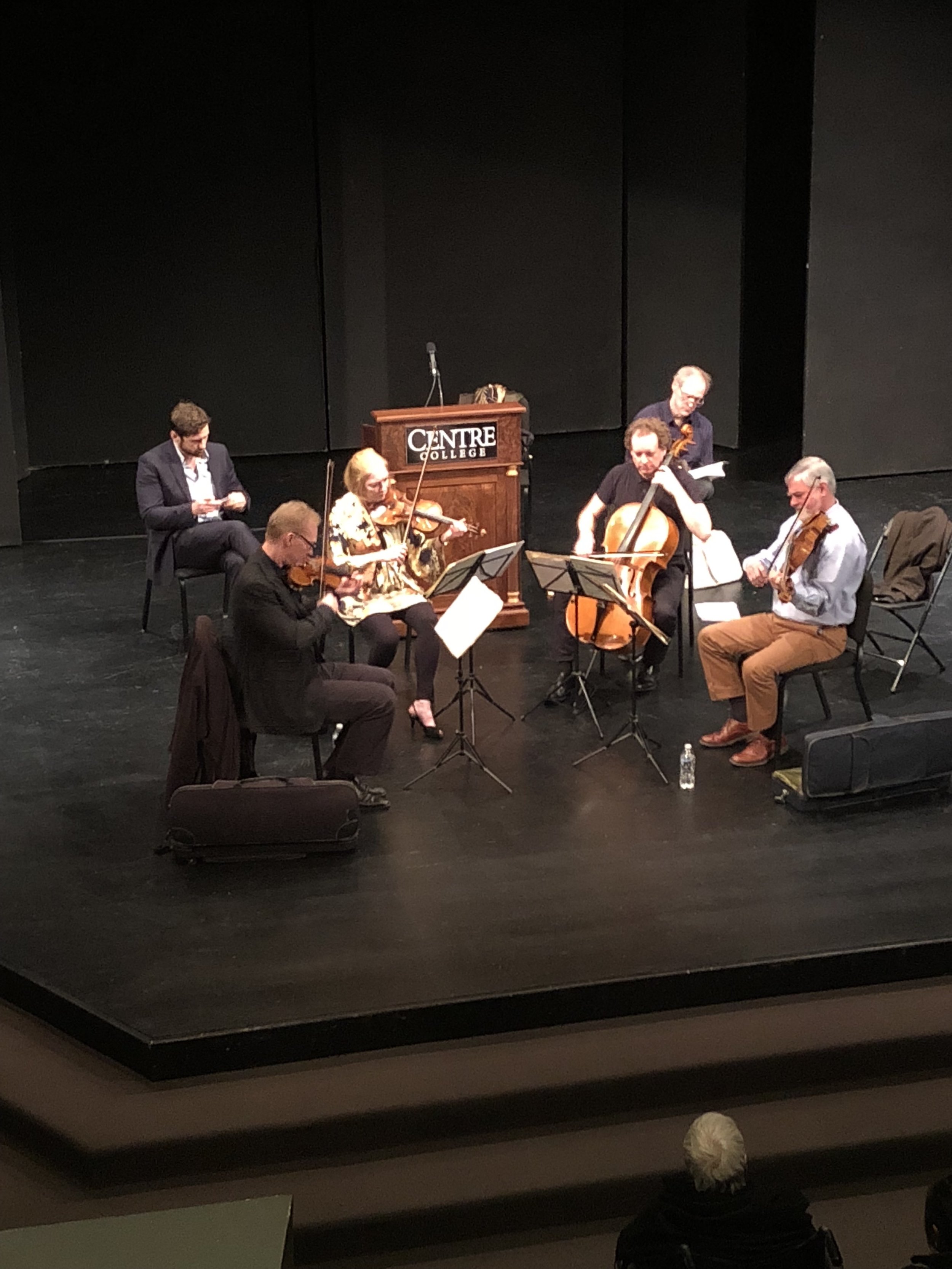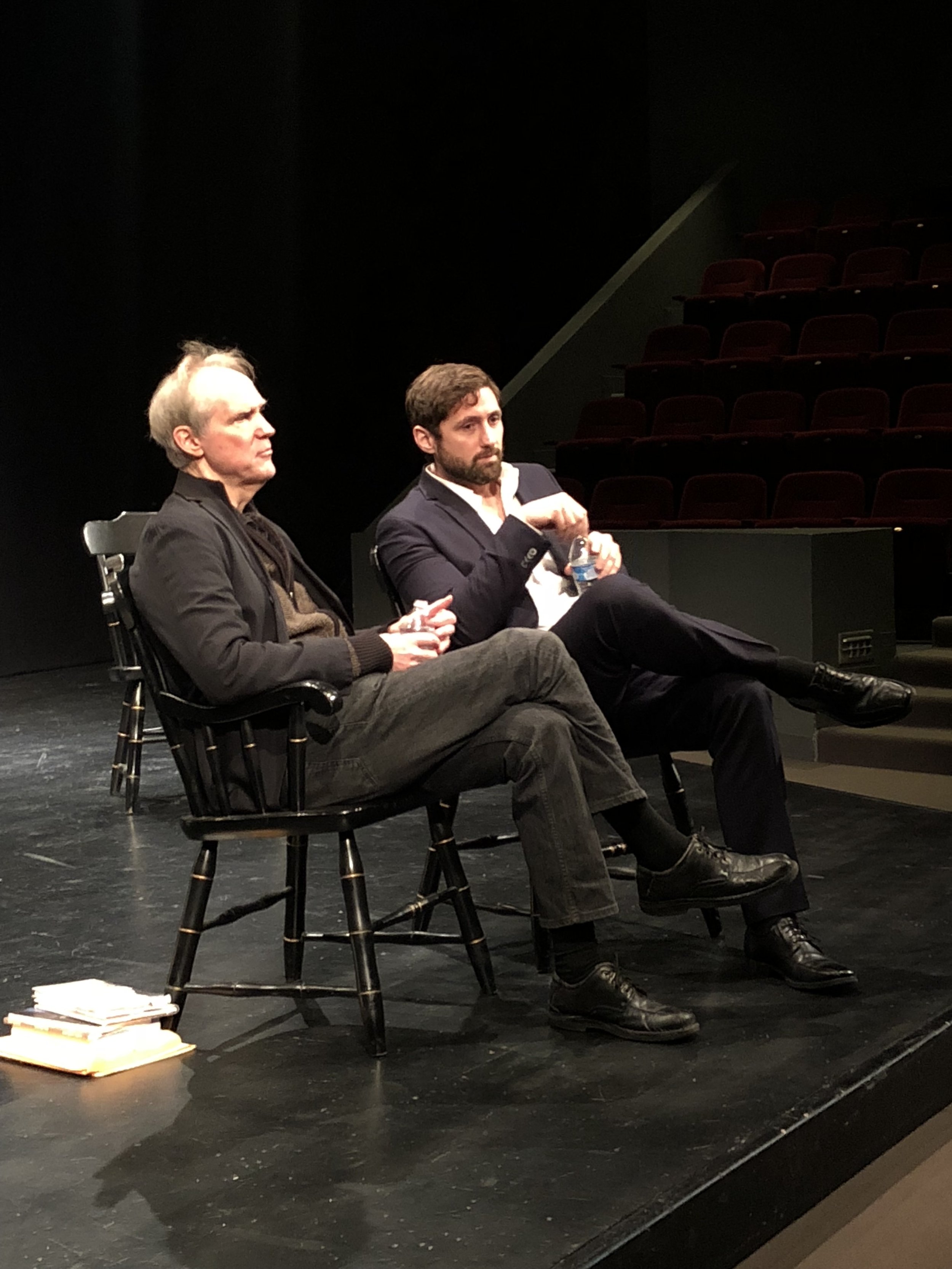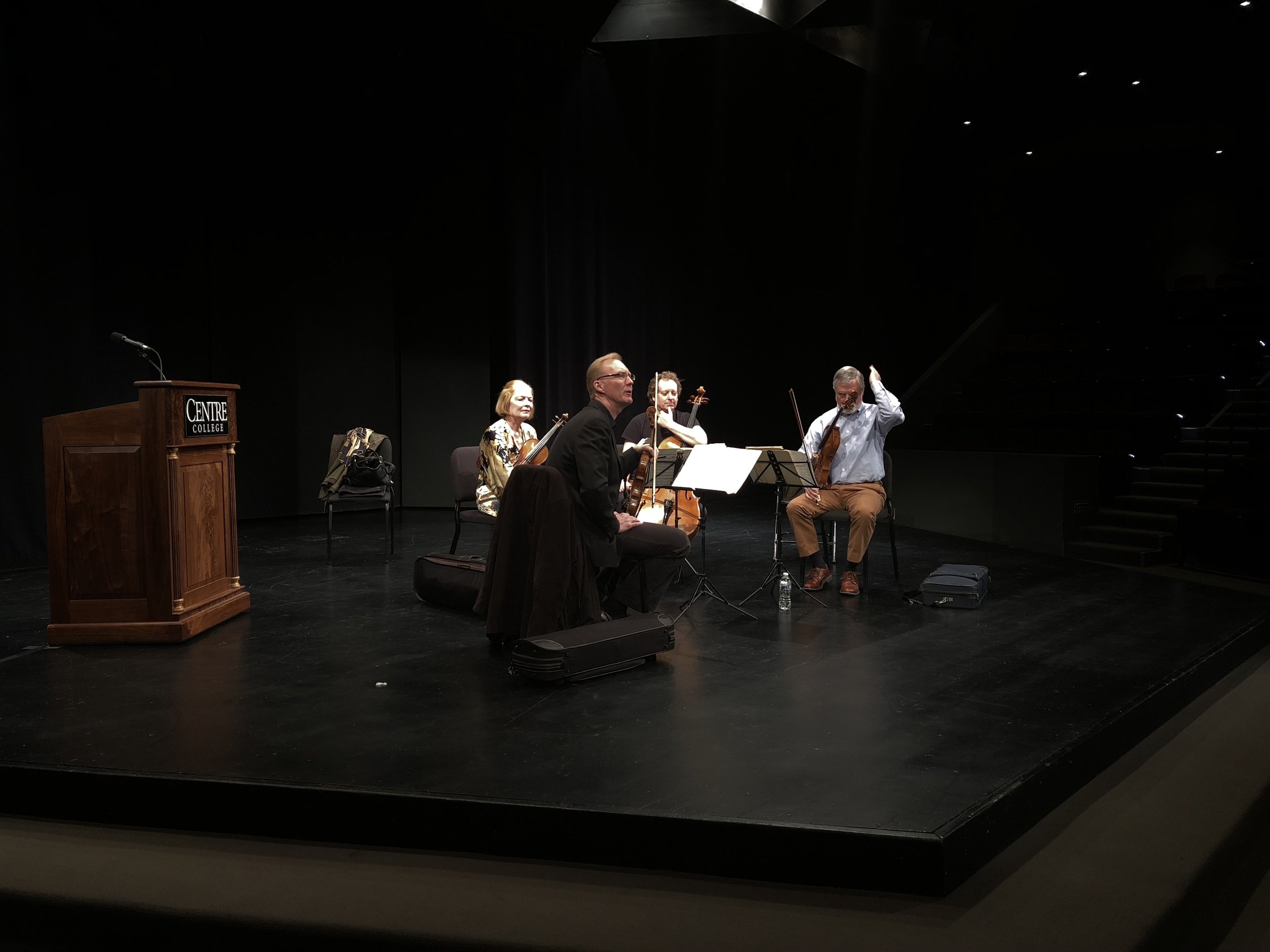Lyric in Time of War
An examination of the effects of war on people, their hearts, and their minds
The American String Quartet has teamed up with the writer Phil Klay - who won the National Book Award for his book Redeployment in 2014 - and the poet Tom Sleigh to present a culturally significant program called “Lyric in Time of War.” Phil is a former U.S. Marine who served in Iraq, and Tom has reported on the bloody conflicts in Lebanon, Somalia, Iraq, and Libya. The program combines music written in response to war together with Phil and Tom reading excerpts from their works. Short readings are interspersed with music such as Samuel Barber’s stunning Adagio; Bela Bartók’s March from Quartet No. 6, and Shostakovich’s String Quartet No. 8, a piece famously dedicated to the victims of fascism and war. This program offers two perspectives on war; it acknowledges the hardships while recognizing and celebrating the sacrifices made by our veterans.
This has been an incredibly successful program all over the country, as it speaks to the very real feelings, fears, and hopes of Americans. In addition, the outreach opportunities are vast: the musicians and authors have worked in VA hospitals, taken questions and bookstores, met with veterans’ groups privately. It’s a way to really have an impact on your community.
The program, around 80 minutes, is usually performed without intermission. It begins with a Bach Prelude and Fugue; all the pieces are short (between 4 - 8 minutes) except for the Shostakovich String Quartet, which has readings in between the movements, creating an exciting and moving sound collage. The concert is a dialogue between speaking and music, and can end with the gorgeous Cavatina from Beethoven's magnificent quartet Op. 130.
Bach: Praeludium in F minor, BWV 857, from the Well-Tempered Clavier
Shostakovich: Quartet No. 8
Bartók: Marcia from Quartet No. 6
Barber: Adagio from Quartet for strings, Op. 11
Beethoven: Cavatina from Quartet in B-flat major, Op. 130
Community Engagement
Numerous opportunities exist to fully involve your community in this one-of-a-kind presentation. Here are some ideas that other presenters have used.
Book Clubs: Books can be provided at a discount for local book clubs to read the texts in advance of the performance and to discuss the themes.
Bookstores: Local bookstores can host readings and book-signings. In some locations, bookstores have donated proceeds from the event to local veterans’ groups.
Veterans: VA hospitals and local chapters can be locations for readings and quartet performances; veterans and active military can be offered discounted tickets or can participate in round-table discussions.
University or High School Engagement
Panel Discussion: General conversation with the authors and the musicians about the genesis of the program, the impact of the themes, and the intersection of music and literature. This can be moderated if desired.
Art and Social Justice Discussion: Led by Phil Klay and Tom Sleigh, this panel examines the positive social outcomes that can be manifested through art. Especially interesting for students looking for the “why” in their worlds, this conversation analyzes the bigger picture in pursuing a life as a musician, writer, or artist.
Music Theory Class: A study of the practices, possibilities, and details of music with some of the greatest classical musicians performing today.
Open Rehearsal: This provides an opportunity for music students as well as the general student population to observe how a group of chamber musicians work together to perfect the music.




